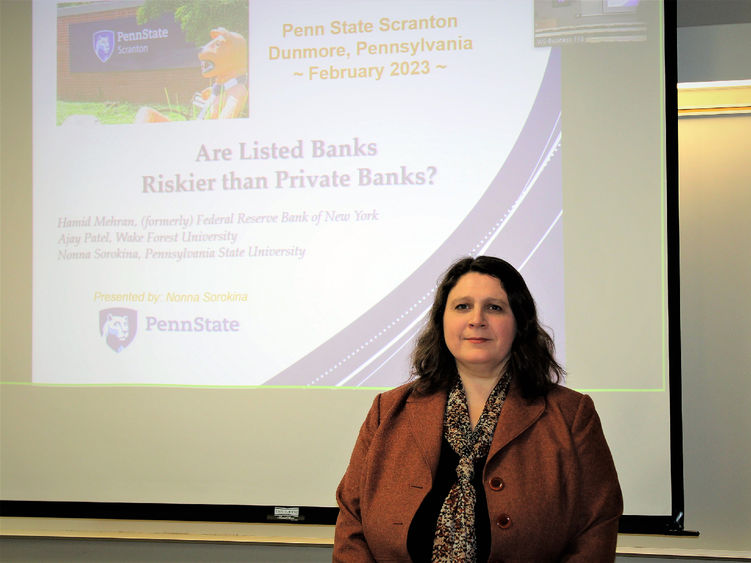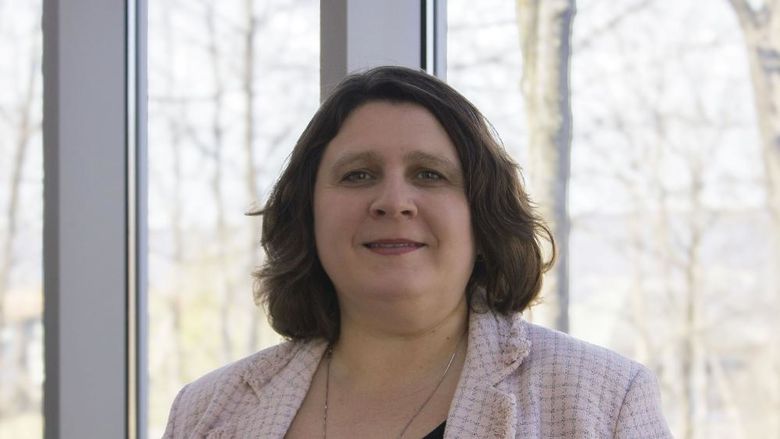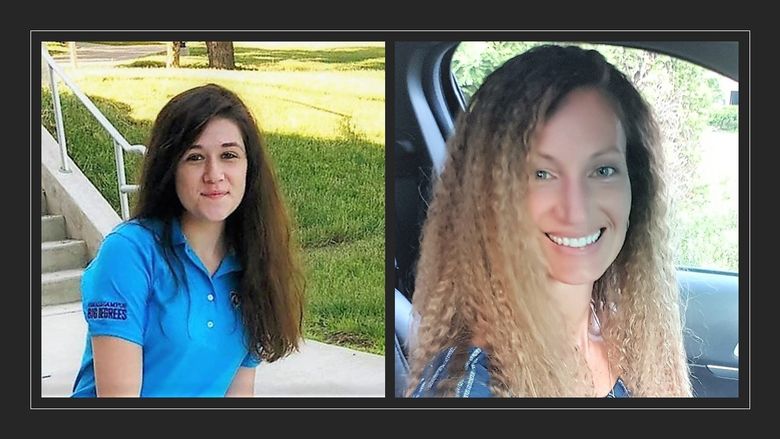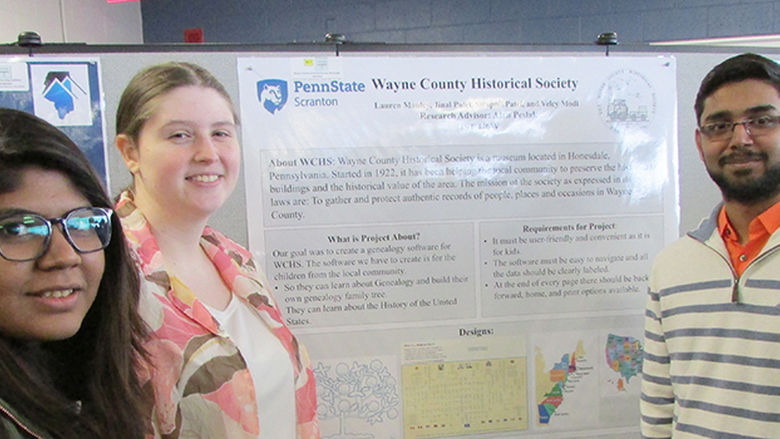
Penn State Scranton Assistant Professor of Business Nonna Sorokina presented her research on banking industry risks during the campus' most recent Brown Bag Lunch Series, a forum for faculty and students to present their work to the campus community.
DUNMORE, Pa. — The banking industry has been making major headlines recently with the collapse of two major banks in March alone, making a presentation by Assistant Professor of Business Nonna Sorokina during this month's Brown Bag Lunch Series both timely and relevant.
Sorokina, who worked in the banking industry for over 25 years, talked about the research she is conducting on risks in banking, collaborating with Hamid Mehran, a retiree from the Federal Reserve Bank of New York, and Professor Ajay Patel, the Thomas S. Goho Chair in Finance, Area Chair, at Wake Forest University. The trio began the project, titled "Are Listed Banks Riskier Than Private Banks?" in 2017.
The banking system affects the entire economy, said Sorokina. She described the banking system as a “source of liquidity,” while highlighting how banking plays a part in the whole economy, similar to how blood plays a major role in the human body.
“If banks take too much risk, they default,” she explained. “Bank deposits are insured, and they also get bailed out to mitigate economy wide-issues. We don’t want banks to take too much risk and then pay for it.”
Sorokina, Mehran and Patel are studying bank risk-taking in the period between 1990 and 2019, and bank failures that resulted from the financial crisis of 2007-09. Throughout that time, Sorokina explained, regulators focused heavily on making sure banks didn’t fail, as well as noticing that many banks became larger during this period.
The team said that their research aims to show that risk-taking during the crisis period proves that listed banks are more risky than private banks during the middle of the crisis.
“Publicly traded banks may have greater incentive to be riskier, as opposed to private banks,” Sorokina explained. “However, publicly traded banks are often more diversified and may be better equipped to tolerate risk.”
Sorokina chose this topic for the Brown Bag Lunch Seminar Series because she has seen bank failure as a result of excessive risk-taking firsthand. “This is not just business, human lives are affected by the turmoil,” she said.
One main objective Sorokina hopes others take away from her research is that “ownership structure affects bank risk taking that may, in turn, spillover into the real economy.”
This was Sorokina’s second time presenting for the Brown Bag Lunch Seminar series; she welcomed the opportunity to talk about research in this type of setting, which she says is important.
“Seminars provide a two-way forum for collaboration and food for thought,” she said. “The authors get feedback from colleagues that helps improve the working paper, while non-presenting participants learn new approaches, topics and methods and develop their own ideas.”
The Brown Bag Lunch Series was started several years ago at Penn State Scranton as a collaborative effort between Mike Evans, assistant dean for undergraduate nursing education at Penn State’s Commonwealth Campuses and a teaching professor in nursing, and two former psychology faculty members, Doug Sellers and Karin Machluf, to provide a forum where faculty, students and alumni could share their research, quality improvement projects and creative works in a non-intimidating format before presenting at larger conferences.




